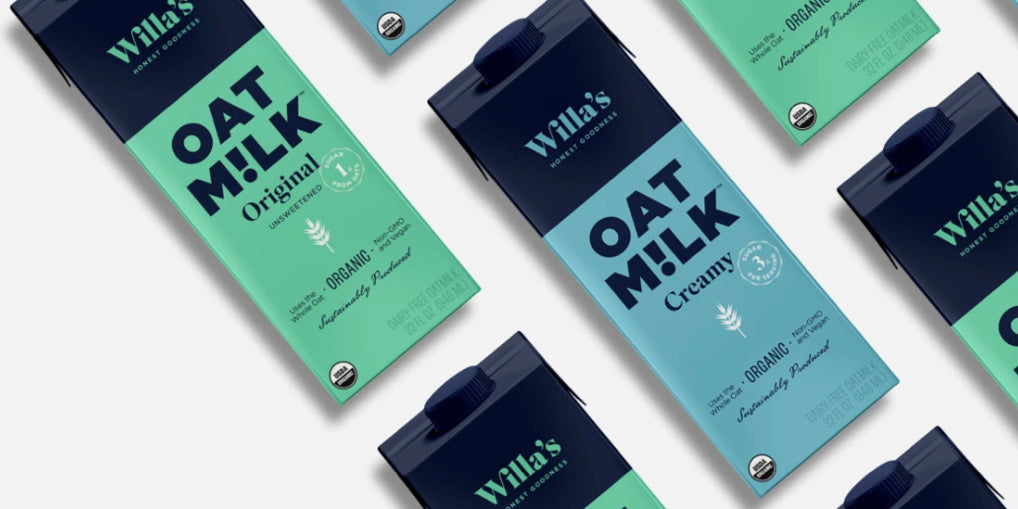My morning Oat Milk Latte makes me happy. It is the morning solace that I look forward to once the dog has been walked and fed, and the kids are settled at their desks to begin their online schooling.
As I am not a big dairy fan, about a year ago I switched to oat milk. I was pleasantly surprised, and am now slightly obsessed. The best part? Oat milk is low in fat and sugar (if you chose an un-sweetened, no added oil version!) but high in protein and fiber.
Oat Milk has also been linked to a reduced risk of heart disease thanks to a type of fiber called beta-glucan which has been shown to improve cholesterol levels.
Some oat and (other milk alternatives) are enriched, often with added B vitamins, iron, calcium, and magnesium. However, I prefer a non-enriched option.
It is important to choose your oat milk brand wisely. Look for organic (which is pesticide free), gluten free (if you are gluten sensitive), and be sure it does not include rapeseed oil or canola oil. Canola oil is a no-no in any diet as it is a low-quality omega-6 oil and typically is GMO which we should all do our best to avoid.
Be sure to read the label as you also want to avoid any gums, emulsifiers or artificial flavors in any of your non-dairy milks. If you are so inclined, it is easy to make your own oat milk using organic oats and clean, filtered water (see instructions below).
My favorite brands are Willa's and Oatly (Oatly’s organic version only) each contain three ingredients only: 100% oats, water and sea salt.
I top off my latte with a generous sprinkling of organic Ceylon cinnamon. Cinnamon is loaded with antioxidants, has anti-inflammatory properties, and can help lower blood sugar. It has also been suggested that cinnamon can kill bacteria and viruses.
Whatever your morning routine, just make sure it puts a smile on your face! Because that’s about all we can ask for these days!
Homemade Oat Milk
- 1 cup of organic rolled oats
- 4 cups of clean, filtered water
- Add rolled oats and water to a high-speed blender and blend on high for 30-45 seconds. Do not over blend as over-blending will make the oat milk slimy.
- Strain the oat milk through a cheese cloth or clean dish towel. You can use a nut milk bag or a fine mesh strainer but these tend to allow for too much pulp so we would not
- If desired, add a sprinkle of sea salt, cinnamon, cacao powder or vanilla extract when blending to add some flavor.
Interested in other easy recipes that support health & wellness? You can find some of my favorites HERE














0 comments